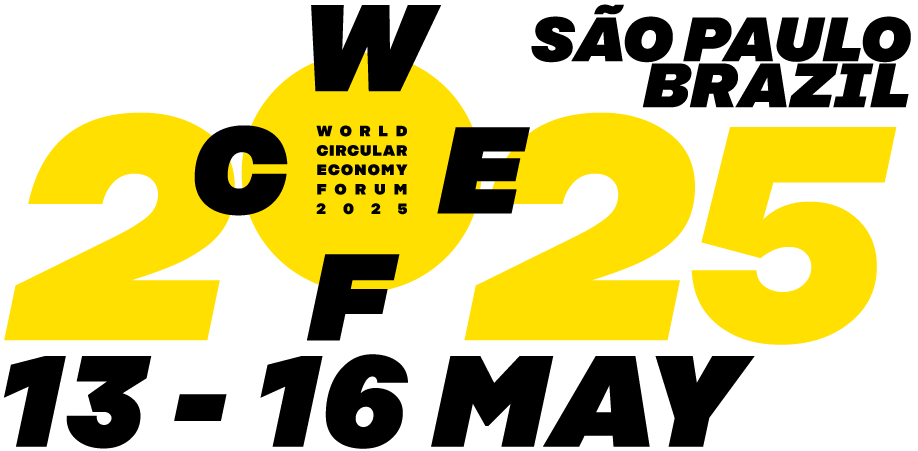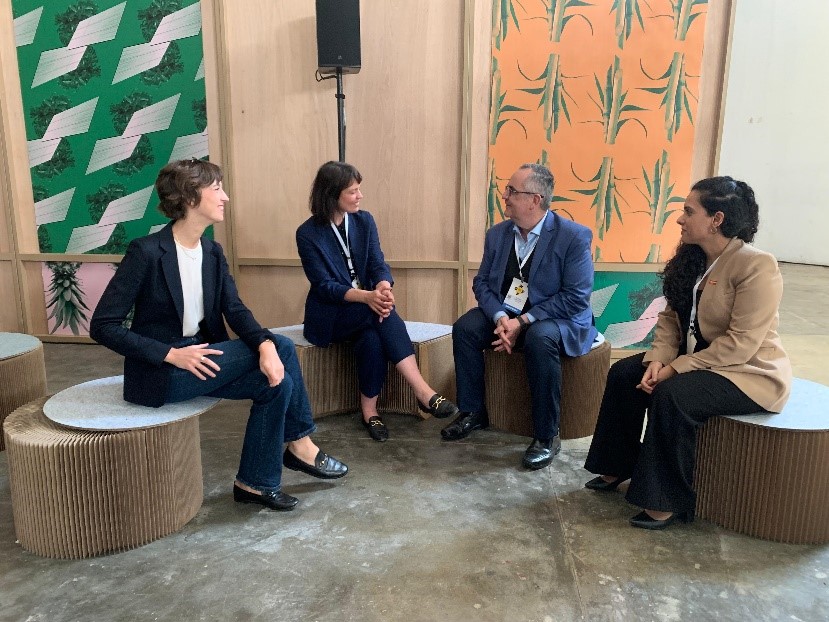World Circular Economy Forum 2025 (WCEF 2025)

Circular economy is climate policy, May 13–16, 2025, in São Paulo, Brazil
According to the International Resource Panel´s Global Resources Outlook 2024, resource use accounts for over 50% of global greenhouse gas emissions. Therefore, a systemic shift towards greater resource efficiency and a circular economy is central to meeting the 1.5°C limit. However, the Circularity Gap Report published at the World Circular Economy Forum 2025 shows a dramatic decline in the global circularity rate to 6.9%. Ahead of the UN climate conference in Belém, Brazil, in November 2025, the WCEF2025 focused on the climate protection potential of the circular economy and integrating circular solutions into national climate policies. “We need the circular economy to effectively combat climate change,” said COP30 President Corrêa do Lago at the conference.
The Federal Ministry for the Environment, Climate Action, Nature Conversation and Nuclear Safety (BMUKN) pursues the goal of strengthening cooperation with important emerging countries such as Brazil on the circular economy and resource efficiency through structured political dialogue. This implementation of the National Circular Economy Strategy (NCES) measures occurs in the context of international cooperation. As a resource-rich emerging market with growing resource consumption, Brazil plays a central role in the transformation towards a global circular economy. Brazil has ambitious policy frameworks, such as the Plano Nacional de Economia Circular, which is initiating a strategic shift towards sustainable reindustrialization that explicitly takes social inclusion, employment and equitable development into account. Politically supported dialogues are crucial to promoting regulatory coherence and enabling sectoral cooperation, such as on design standards and public procurement and facilitating investment in circular solutions.

Another NCES measure in international cooperation is a planned 20-million-euro UNIDO project „Climate and Biodiversity Action through Circular Economy Solutions“ (CB-ACES), running until 2030, within the framework of the International Climate Initiative (IKI). The project aims to integrate economic modernization, climate protection and biodiversity conservation into sectoral circular economy strategies. Through this multilateral commitment, the BMUKN supports the economic transformation of leading G20 countries, including Brazil, India, Mexico, and South Africa. These measures also strengthen German innovation and export potential in key circular technologies by addressing the entire value and supply chain. The project focuses on the economic sector and decarbonizing industry. Political partners include the respective ministries of industry, as well as industry and economic associations.
From May 13 to 16, the WCEF, the world's premier platform for the circular economy, convened in São Paulo, bringing together 1,300 experts from business, politics, and science, as well as thousands more online. WCEF2026 will take place in India.